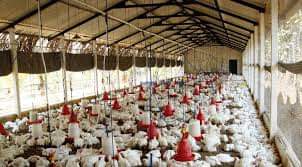MANAGEMENT OF POULTRY DURING WINTER
Winter generally arrives in India with departure of festive seasons like Durgapooja & Deepawali.The ready birds rate during this period always remains high due to high demand of chickens.So poultry farmers try to place their birds as many as possible in their farms to gain maximum profit. But they forget the adverse effect of cold stress on the poultry birds which generally leads heavy mortality making farmers business of loss.Winter season has incredible impact on poultry generation by bringing down the temperature of encompassing. Amid winter when temperature goes down and different issues like decrease in egg generation, lessening in water consumption, diminishment in fruitfulness and hatchability and so forth happens.
Therefore, the management of poultry during winter is an important concern for poultry farmer. Following points should be considered to get better production from poultry during winter season:
- Orientation of house
- Ventilation
- Litter management
- Feed management
- Water management
ORIENTATION OF HOUSE
Poultry house should be designed in such a way to provide all the comfort required by birds during winter. Orientation of a building with respect to wind and sun consequently influence temperature, and light on different external surfaces. In winter the arc of the sun’s visible path is shortened, an east west alignment of a rectangular house provides a maximum gain of solar energy in winter. House should be designed in a way that maximum sun light enters the shed during day time. Birds should be protected from chilled winds, for this gunny bags should be hanged at the places from where the cold air enters. These gunny bags should be hanged down as soon as sunlight goes in the evening till the arrival of sunlight next morning.
VENTILATION
During winter season it is necessary to keep the hose draft free but with plenty of ventilation. Birds release a lot of moisture in their breath and droppings which adversely affects their health, if there is restricted ventilation it causes ammonia build up in the air which causes respiratory problems. So, they need plenty of fresh air circulating around the house. For the purpose sliding windows are useful as they can be opened during day and closed during night. There should also be arrangement of exhaust fans to remove impure air.
LITTER MANAGEMENT
Prior to chick being placed in house, the surface of floor should be covered with a bedding material called litter. It gives comfort to the birds. A good quality litter serves as an insulator in maintaining uniform temperature, also absorbs moisture and promotes drying. It dilutes faecal material thus reducing contact between birds and manure. It also insulates the chicks from the cooling effects of the ground and provides protection cushion between bird and floor. Around 6 inches of litter is needed in houses during winter. The litter gives warmth to the birds during winter. If litter management is proper, it will be felt quite warm when taken in hand.
FEED MANAGEMENT
- Poultry uses food for two main purposes i.e., as an energy source to maintain body temperature and to carry on normal physiological activities and as building material for development of bones, flesh, feather, egg etc.
- The variation in feed consumption is smaller for each degree Fahrenheit change in temperature when the weather is cold than when it is hot. Low temperature causes more feed intake and higher oxygen demand. Therefore, when the weather gets colder, it is essential to give the chicken plenty of food as they require extra energy for maintaining body temperature.
- Consumption of calories of ME/bird/day varies as the ambient temperature changes. Normally these differences are as follows:
- When bird eat more feed, along with energy, other nutrients are also consumed more which are actually not needed and they become a waste. To avoid this wastage during winter energy rich sources like oil/fat should be added to the diet or level of other nutrients may be reduced keeping the energy at same level
- In winter number of feeders should be increased as compared to summer.
- Feed should be available to the bird whole of the day. It has been experimentally proved that for proper growth of broiler during summer, diet containing 23% protein and 3100 Kcal ME/kg diet is needed. While in winter 3400 Kcal/kg ME and 23% protein is needed.
WATER MANAGEMENT
- During winter season birds take less water so far maintenance of water in the body, it is necessary to give continuous supply of fresh water which can be taken by the bird.
- Water must be fresh and clean. If water is cold enough, then it should be given to chicken after adding hot water to it, so that the water comes to normal temperature.
- In ice falling areas, blockage of pipe is a big problem due to freezing of water during winter season. When temperature goes below 0°C routine inspection of pipe line should be done to avoid blockage of water.
- Many of vaccines/ medicine/ antis tress vitamins are given to poultry through water. As water consumption of bird is reduced during winter season. Therefore, care should be taken that waterers are removed few hours prior to water medication and medicine/vaccine is given in less amount of water so that birds can consume total water and each bird get benefit of medicine/vaccine or other supplements.
DR. VINAY PRASAD,POULTRY CONSULTANT,GOPALGANJ, BIHAR



